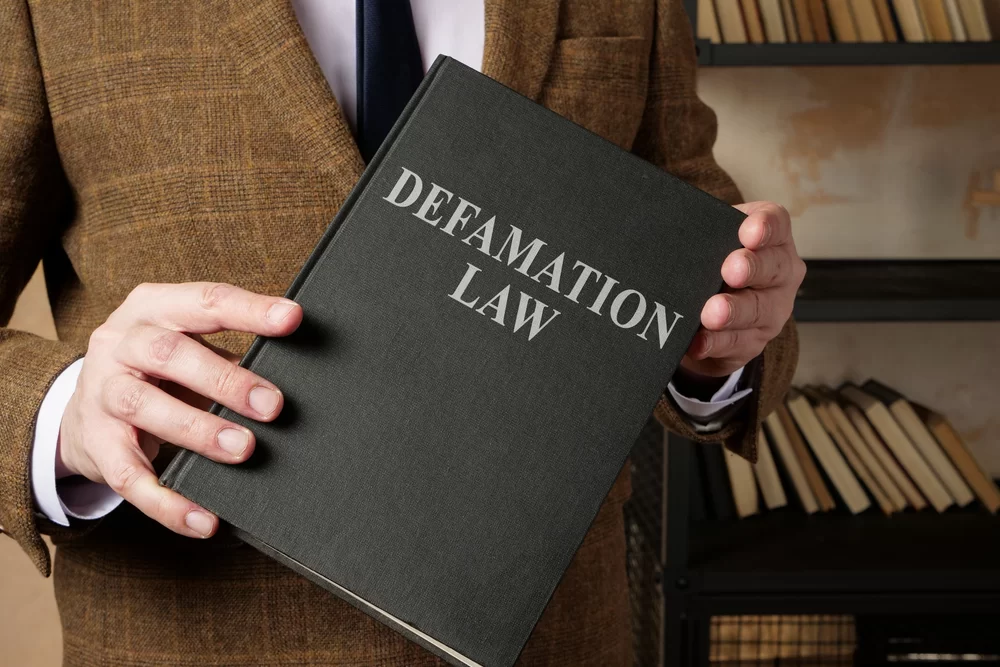Why You Need a Lawyer for a Defamation Lawsuit
Defamation lawsuits are complex legal battles that can have a significant impact on your personal or professional life. If someone spreads false information about you that harms your reputation, you may need to take legal action. Finding a lawyer for defamation lawsuits is crucial for ensuring that your rights are protected and that you have the best chance of winning your case.
Understanding Defamation
Before diving into the legalities, it's important to understand what defamation is. Defamation occurs when false statements are made about an individual or entity that damages their reputation. These statements can be in the form of written words (libel) or spoken words (slander). Defamation can occur in various forms: online, in the media, or even within private conversations.
One of the most famous defamation cases in recent history involved a well-known celebrity who sued a tabloid for publishing false stories. This case caught the attention of the public and highlighted the importance of having strong legal representation in defamation cases. If you find yourself in a similar situation, seeking legal help should be your first step.
How to Find a Lawyer for Defamation Lawsuits
1. Research Experienced Defamation Lawyers
When looking for a lawyer to handle your defamation lawsuit, experience is key. You want someone who specializes in defamation law and has a proven track record of successful cases. Start by researching local law firms that focus on media and defamation cases. Many law firms offer free consultations, which can help you gauge the expertise of potential lawyers.
2. Consider Online Reviews and Referrals
One of the most effective ways to find a reputable defamation lawyer is by checking online reviews or asking for referrals. People who have experienced similar legal issues can offer valuable insights into their lawyers’ abilities. While no lawyer can guarantee a win, positive reviews and recommendations can give you confidence in your choice.
3. Look for Lawyers with Trial Experience
Defamation lawsuits often involve going to trial, so it's important to choose a lawyer with trial experience. Some lawyers are skilled negotiators and may try to settle the case before it goes to court. However, if your case does go to trial, you need an attorney who is comfortable presenting your case in front of a judge and jury. Make sure to inquire about the lawyer's courtroom experience during your initial consultations.
4. Assess the Lawyer’s Communication Skills
In a defamation case, clear and effective communication is essential. You need a lawyer who can explain complex legal concepts in a way that you understand. Additionally, your lawyer should be responsive and keep you updated on the progress of your case. Pay attention to how the lawyer communicates during your initial consultation. Are they attentive to your concerns? Do they answer your questions in a way that makes sense?
Real-Life Defamation Lawsuit Stories
There have been many high-profile defamation cases that can provide insight into the process. For example, in 2020, a well-known actress sued a major newspaper for publishing false and damaging claims about her. Her lawyer not only successfully won the case but also negotiated a significant financial settlement. This victory underscored the importance of finding the right lawyer who understands both the law and how to navigate media-related defamation cases.
Similarly, a business owner in New York was able to recover damages after a competitor spread lies about the quality of their product. The business owner’s legal team filed a defamation lawsuit, and after several months of legal battles, the case was settled in their favor. This case highlighted how defamation can affect businesses and why having a lawyer on your side is essential for protecting your business reputation.
The Importance of Timely Action
If you believe you have been defamed, time is of the essence. Defamation laws vary by state, and each state has different time limits for filing a lawsuit. Failing to take action within the legal timeframe may result in losing the opportunity to pursue your case. That's why it's crucial to consult with a lawyer as soon as possible to ensure that your case is filed on time.
What to Expect During a Defamation Lawsuit
1. Investigation and Gathering Evidence
Once you hire a lawyer, they will begin by investigating the defamation claims and gathering evidence. This may include collecting social media posts, emails, text messages, and any other materials that can support your case. Your lawyer may also reach out to witnesses who can testify on your behalf.
2. Filing the Lawsuit
After gathering sufficient evidence, your lawyer will file the defamation lawsuit in the appropriate court. The lawsuit will outline the defamatory statements, how they have harmed you, and the damages you're seeking. This is when the legal battle truly begins.
3. Settlement or Trial
Most defamation cases are settled out of court. However, if a settlement cannot be reached, your case will go to trial. During the trial, both sides will present their evidence, and a judge or jury will determine the outcome. If you win, the court may award damages, including compensation for harm to your reputation and emotional distress.
4. The Aftermath
Even after the legal proceedings are over, the effects of a defamation case can linger. It's important to continue protecting your reputation and, if necessary, work with your lawyer to ensure that any harmful statements are removed from public platforms. A defamation lawsuit can be a long and stressful process, but the right lawyer can make all the difference in achieving a favorable outcome.
If you find yourself facing a defamation lawsuit, remember that you are not alone. Many people, from celebrities to small business owners, have faced similar challenges. With the right lawyer, you can take action to protect your reputation and seek justice for the harm caused by defamatory statements.


 devin law firm charlotte
devin law firm charlotte attorney peter francis geraci
attorney peter francis geraci whistleblower lawyer philadelphia
whistleblower lawyer philadelphia 805 3rd ave ny
805 3rd ave ny compass immigration legal services
compass immigration legal services bradford cohen attorney
bradford cohen attorney